Catholic survey offered by belief net. Check it out. The only question I didn’t like was the role of women in the church. You had to answer either priestesses or deaconesses. What’s up with that?
Archive for the ‘Ratzinger’ Category
Belief net survey for Catholics
Posted in Catholic, Catholicism, Pope Benedict, Ratzinger, Roman Catholic on March 27, 2008| Leave a Comment »
Chinese Stations of the Cross @ the Vatican
Posted in Cardinals, Catholic, Catholicism, christian, church, faith, Papacy, Pope Benedict, Ratzinger, religion, Roman Catholic, theology on March 21, 2008| 1 Comment »
I thought it a stroke of genius to have the stations of the cross performed by Joesph Cardinal Zen of China. The Vatican has a link to the cards them made for this year. It’s in Italian so you’ll have to translate it.
I think this reflects the high priority of the Papacy in praying for those in China and for diplomatic relations with their gov’t.
B16 visit to USA Catholic Universities -the coming storm- why should you exist
Posted in Catholic, Catholic education, Catholicism, christian, church, faith, News, Papacy, Pope Benedict, Ratzinger, religion, Roman Catholic, theology on March 19, 2008| 1 Comment »
I expect that there will be much written about the Pope’s coming visit to the US. I think perhaps the media will focus on social issues or comments the pope may make and how such statements might effect Catholic voters in the coming elections. But for Catholics I think perhaps there will be no greater issue then on APril 17, when the Pope will engage the 200 top Catholic school officials from across the country. Frankly, I wouldn’t be surprised if the Pope received the same type of reception as he did at the former Catholic university in Rome la-sapienza university 2 months ago.
In First Things Fr. Richard John Neuhaus wrote an article entitled “A University of a Particular Kind”. There is in this country two kinds of universities – Secular and Christian. Neither are neutral in their worldview, but since there are so many more secular universities most people receiving that type of education would consider secular to be neutral. It’s not, its existance is hostile to the Christian theos. This does not mean it shouldn’t exist, however the inroads of secular thought into Catholic universities has been significant and clearly harmful to the church. If one believes the Cardinal Newman Society it has recommended 20 of the 235 U.S. Catholic colleges “which most faithfully live their Catholic identity and provide a quality undergraduate education”. In this day and age I amazed its that high.
Catholic universities have been able to give lip service to Catholic parents who believe that their child will receive a “Catholic” higher education. However, whenever the rare bishop is willing to hold the university accountable to that standard, the normal spin or party line if you will goes like this: in seeking truth & academic excellence, placing Catholic teaching or a Catholic environment in higher education would inhibit academic freedom.
If any one would doubt this position, I draw this conclusion from none other then the famous Land O’ Lakes Statement crafted by Rev. Theodore M. Hesburgh President of Notre Dame University back in 1967. One either hailed this position as a stand for academic freedom or viewed it as a divorce between Catholic education in this country and the Catholic church. IMO the latter is clearly demonstrated.
My biggest issue with Rev. Hesburg and those who support his position is that they disagree with the Catholic church on positions already settle and therefore not open to debate, yet they run their universities directly against those ideals, and they are unwilling to advise the Catholic parents who expect that their young Johnny’s faith will not be undermined, but actually reinforced what was taught in their home.
The Washington Post may prove me wrong about the media not picking up on this one Catholic College Leaders Expect Pope to Deliver Stern Message
Ex-corde-ecclesia written by Pope John Paul II in 1989 will finally be implemented into Catholic universities. Or at least I hope it will.
With every other University it shares that gaudium de veritate, so precious to Saint Augustine, which is that joy of searching for, discovering and communicating truth(2) in every field of knowledge. A Catholic University’s privileged task is “to unite existentially by intellectual effort two orders of reality that too frequently tend to be placed in opposition as though they were antithetical: the search for truth, and the certainty of already knowing the fount of truth”(3).
I don’t expect that the Pope will get anything but lip service. My only hope is that the Pope will place them on notice and advise the general Catholic population that these institutions will be striped of any formal association, and prohibited from claiming any Catholic identity.
As the washington post article stated David Gibson, the author of a Benedict biography, said the pope will ask, “If you’re not going to be an authentically Catholic, orthodox institution, why should you exist?”
Amen.
Benedict XVI & Orthodox EP Bartholomew pray together @ Vatican
Posted in Catholic, Catholicism, christian, church, Eastern Orthodoxy, Ecumenical, Papacy, patriarchy, Pope Benedict, Ratzinger, religion, Roman Catholic on March 15, 2008| Leave a Comment »
I think this was more then symbol over substance here. 100 years ago the idea of the Pope & the Ecumenical Patriarch praying together [in latin no less] would be impossible. The Catholic Herald has a solid reivew of the event.
“Orthodoxy,” he said, “was the common responsibility and obligation of all.”
He said, the liturgy – a communal celebration – was the place where the community learned, expressed and strengthened its faith. “Whereas the gradual development in the West of a juridical source of authority led to an understanding of liturgical rites more as external signs, Eastern Christianity visualised liturgy as an authoritative criterion of faith and ethics”, seen, for example, in the practice of quoting liturgical texts in support of a theological argument, he said.
I think this is an excellent point. Although I think perhaps the reformation may have had a hand in this practice in that Catholics would not refer to liturgical texts in support of Catholic positions because it would be dismissed out of hand. Perhaps thats someting to reconsider.
The Pope can’t lift excommunication on Luther
Posted in Catholic, Catholicism, christian, church, church history, Ecclesiology, Ecumenical, faith, Lutheran, Papacy, Papal Supremacy, Pope Benedict, Ratzinger, religion, Roman Catholic, theology on March 8, 2008| 1 Comment »
This is driving me nuts. I have read in several places where Pope Benedict XVI is having discussion on writting a document on Luther and lifting the excommunication edit on Luther. The London Times has a rumor article on the Pope issuing on in the fall.
Here at least is someone that went to the wizard and received a functioning brain and dispels the rumor.
Here is another link to what the current pope thought on the topic 20 some years ago. It’s well worth the read. Ratzinger on Luther – Communio 11: Fall, 1984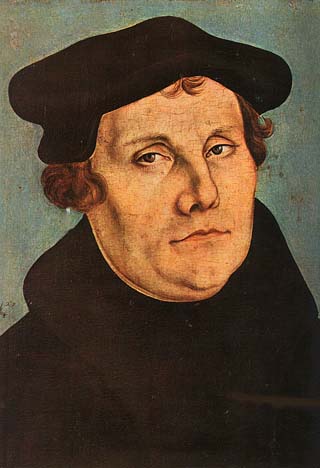
I expect some favorable points made on Luther by the Pope this summer or fall, but those who think the excommunication on Luther would be lifted are grossly misinformed or have grossly been mislead in religious education, especially in the area of papal authority.
You see the church (including the Pope) has no authority over the dead. Judgement does indeed come from God, so the Pope does not have any authority to lift the sentence against Luther, nor would such a gesture be fruitful. It’s moot- he’s dead and God has judged him [for good or for ill]. I hesitate in using the word “has” with respect to God since this is performed in eternity, but hopefully my point is understood.
Galileo vs. Pope Benedict XVI or university minority suspends free speech
Posted in Benedetto Xvi, Catholic, christian, church, church history, Galileo, News, Papacy, Pope Benedict, Ratzinger, religion, science, theology on January 17, 2008| 3 Comments »
I really didn’t want to get into this topic. However it seems the events of the past few days requires a few lines just to vent.
Pope against the university

La Sapienze is hostage of the pope. Photo – REUTERS/Dario Pignatelli
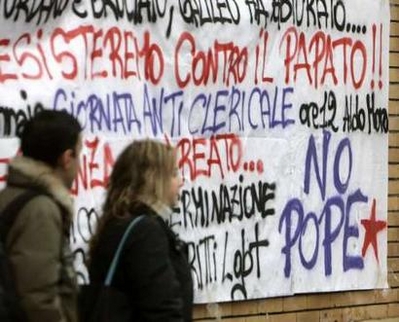 Photo- REUTERS/Dario Pignatelli
Photo- REUTERS/Dario Pignatelli
The Tychonic system explained the known facts as well as Galileo. In fact Galileo went beyond the facts and extrapolated that the earth rotates around the sun. Galileo argue that the tides helped to support the argument that the earth moved round the sun.
The church was in fact more conservative with the facts then Galileo was and perhaps Christopher Clavius held the church’s position best.
What Galileo did prove was that the Ptolemaic system was untenable when he discovered the phases of Venus. The discovery of the moons rotating around Jupiter demonstrated that there was more then one center of rotation.
Tychonic system
and the Copernican system.
The first model supported the facts and didn’t challenge the assumed interpretation of Scripture of Geocentricism. The latter challenged that interpretation and Galileo was on the right track when he chose the Copernican system, but he overreached by claiming his theory was scientific fact when at the time it was demonstrated as only a hypothesis. The Jesuits happily taught the Copernican system in Catholic universities with the church’s blessing, even after Galileo was under house arrest,because they only claimed heliocentrism was a hypothesis not an empirical fact.
The Asia news has the translation of the Pope’s speech to the university of Rome. And the reason for this out cry against the pope? Ratzinger’s 1990 remarks on Galileo
However this is where context is lost. Note in the previous link the words of the then Cardinal now pope
the synthetic judgment of the agnostic-skeptic philosopher P. Feyerabend appears much more drastic (emphasis mine) then the Cardinal quote Feyerabend(who’s opinion is viewed by the pope as more drastic) “The church at the time of Galileo was much more faithful to reason than Galileo himself, and also took into consideration the ethical and social consequences of Galileo’s doctrine. Its verdict against Gaileo was rational and just, and revisionism can be legitimized solely for motives of political opportunism.”
The problem however is that the Pope was pointing out that modernity has become doubtful of itself and of today’s science and technology. The faculty wrote that the Pope’s comments “offend and humiliate us.” “In the name of the secular nature of science we hope this incongruous event can be cancelled,” said the letter addressed to the university’s rector.
The point and the opportunity was missed by the faculty and thereby the protesting students. In the pope’s wonderfully written encyclical on hope Spe-salvi
16…In order to find an answer to this we must take a look at the foundations of the modern age. These appear with particular clarity in the thought of Francis Bacon. That a new era emerged—through the discovery of America and the new technical achievements that had made this development possible—is undeniable. But what is the basis of this new era? It is the new correlation of experiment and method that enables man to arrive at an interpretation of nature in conformity with its laws and thus finally to achieve “the triumph of art over nature” (victoria cursus artis super naturam)[14]. The novelty—according to Bacon’s vision—lies in a new correlation between science and praxis. This is also given a theological application: the new correlation between science and praxis would mean that the dominion over creation —given to man by God and lost through original sin—would be reestablished[15].17. Anyone who reads and reflects on these statements attentively will recognize that a disturbing step has been taken: up to that time, the recovery of what man had lost through the expulsion from Paradise was expected from faith in Jesus Christ: herein lay “redemption”. Now, this “redemption”, the restoration of the lost “Paradise” is no longer expected from faith, but from the newly discovered link between science and praxis. It is not that faith is simply denied; rather it is displaced onto another level—that of purely private and other-worldly affairs—and at the same time it becomes somehow irrelevant for the world. This programmatic vision has determined the trajectory of modern times and it also shapes the present-day crisis of faith which is essentially a crisis of Christian hope. Thus hope too, in Bacon, acquires a new form. Now it is called: faith in progress. For Bacon, it is clear that the recent spate of discoveries and inventions is just the beginning; through the interplay of science and praxis, totally new discoveries will follow, a totally new world will emerge, the kingdom of man[16]. He even put forward a vision of foreseeable inventions—including the aeroplane and the submarine. As the ideology of progress developed further, joy at visible advances in human potential remained a continuing confirmation of faith in progress as such.
18. At the same time, two categories become increasingly central to the idea of progress: reason and freedom. Progress is primarily associated with the growing dominion of reason, and this reason is obviously considered to be a force of good and a force for good. Progress is the overcoming of all forms of dependency—it is progress towards perfect freedom. Likewise freedom is seen purely as a promise, in which man becomes more and more fully himself. In both concepts—freedom and reason—there is a political aspect. The kingdom of reason, in fact, is expected as the new condition of the human race once it has attained total freedom. The political conditions of such a kingdom of reason and freedom, however, appear at first sight somewhat ill defined. Reason and freedom seem to guarantee by themselves, by virtue of their intrinsic goodness, a new and perfect human community. The two key concepts of “reason” and “freedom”, however, were tacitly interpreted as being in conflict with the shackles of faith and of the Church as well as those of the political structures of the period. Both concepts therefore contain a revolutionary potential of enormous explosive force.
This I believe is the pope point which the university doesn’t seem to grasp. Science will never achieve redemption. Most scientist would be repelled to think that society has placed them on such a path, but the secular world and in particular the political sphere has handed that task to it. The pope simply desires to lift that burden from it’s shoulder which it is incapable of lifting. Christ is the only one who has redeemed mankind and the fruit of that task will not be fully realized until the end of time.
Zadok the Roman seems to make a similar point in his blog They’re worse than I thought
Rather, reading in context, his emphasis seems to be the fact that there is a debate within secular thought itself regarding the progress made by science since the Galileo case. He goes on to say:
To my great surprise, in a recent interview on the Galileo case, I was not asked a question like, ‘Why did the Church try to get in the way of the development of modern science?’, but rather exactly the opposite, that is: ‘Why didn’t the church take a more clear position against the disasters that would inevitably follow, once Galileo had opened Pandora’s box?’
Ratzinger himself was surprised at the criticism of modern science which has been arising recently.
What’s his conclusion:It would be absurd, on the basis of these affirmations, to construct a hurried apologetics.
He does not suggest that people of faith ‘construct a hurried apologetics’ based on the reassessment of Galileo by some thinkers. In simpler language, he’s warning us, be careful of jumping to hasty conclusions about the relationship between science and faith.
Religious columnist John Allen says it best
In a nutshell, therefore, Benedict is being faulted by the physics professors for quoting somebody else’s words, which his full text suggests he does not completely share. (Readers who remember Regensburg can be forgiven a sense of déjà-vu.) The pope, modern science, and a canary in the coal mine
The only reason the facility should be scared of the pope is if they actually believe that they rather then Christ are the redeemers of mankind. Even Galileo didn’t have that big an ego;>)
There is I suspect a much larger political rather then theological or scientific motive going on here. The Guardian
is always good for a bit of editing. Note the picture in the article (cropped to remove the wording on the mask) and compare it to the unedited one.
(AP Photo/Gregorio Borgia)
Now we can see that this wasn’t necessarily a protest against the church tainting the universities vaunted “secular” tradition which came with the invasion of the kingdom of Italy in 1870 [of course it should repute it’s actual Catholic foundation- the papacy, perhaps change their lineage to secularly pure for the past 137 years, rather then 705 of taint] which will line it’s political thought up nicely with the EU in it’s denial of it’s obvious Catholic foundations. Perhaps the 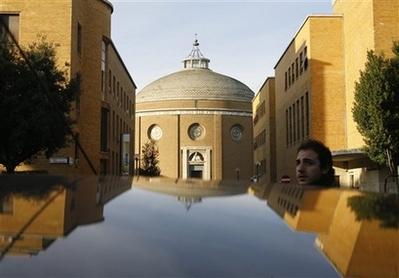
chapel-of-la-sapienza-university AP Photo/Alessandra Tarantino) will be the students next phase in rejecting it’s Catholic roots. Galileo was placed under house arrest, today we see students placing themselves under their own personal house arrest in their minds.
The event had some elements of a political and moral protest to it as the student in the Borgia photo takes the time to protest the pope’s position on homosexuals.
At least the university hasn’t killed the seed of intellectual freedom totally in it’s youth who came to see the pope, since he chose not to come to them.
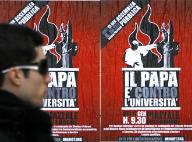


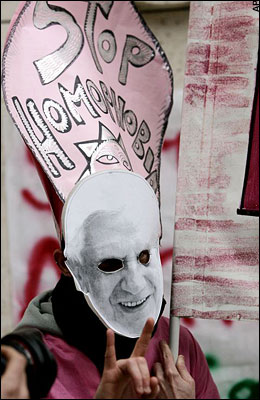

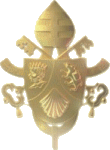

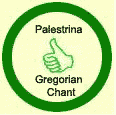










 Site supports Most Reverend Jose H. Gomez
Site supports Most Reverend Jose H. Gomez
 Bishop Kevin W. Vann
Bishop Kevin W. Vann